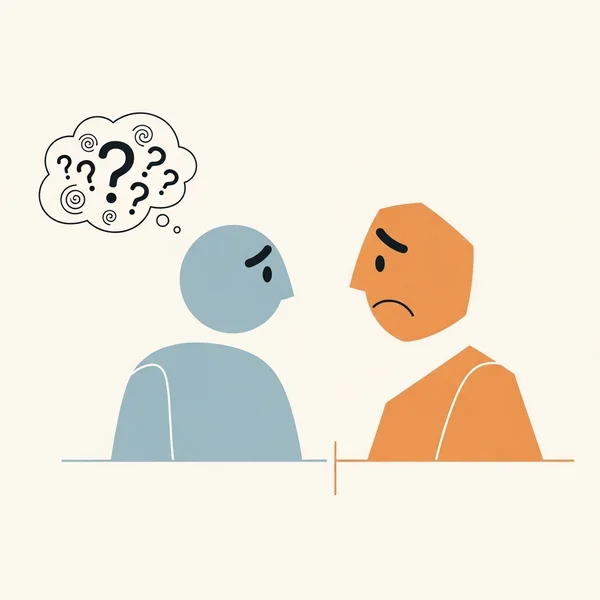10 Signs You Lack Empathy & How to Grow Your Empathy
July 13, 2025 | By Penelope Dean
Ever feel misunderstood or struggle to truly connect with others? You're alone. Empathy is a fundamental human trait, but it shows up differently in everyone, and sometimes, we might not even realize it's missing in ourselves. Understanding a lack of empathy isn't about judging yourself; it's actually a powerful first step towards significant personal growth, building stronger relationships, and improving all your social interactions. Many people wonder, How do I tell if I lack empathy? This comprehensive guide will help you identify common indicators of low empathy within yourself and others, and more importantly, provide practical, actionable strategies to cultivate and strengthen your empathetic responses. For a personalized assessment, consider taking an empathy test to discover your score.

Understanding Low Empathy & Why It Matters
Before we dive into the specific signs, let's take a moment to truly understand what low empathy means and why it's so important in our daily lives. Empathy isn't just about being "nice"; it's a complex cognitive and emotional capacity vital for healthy human connection.
What Does "Lack of Empathy" Truly Mean?
A lack of empathy doesn't necessarily mean a person is cold or malicious. Instead, it refers to a diminished capacity to understand or share the feelings of another. This can manifest in different ways, affecting both cognitive empathy (the ability to understand another's perspective or thoughts) and emotional empathy (the ability to feel what another person is feeling). It’s about a reduced ability to mentally step into someone else’s shoes and grasp their emotional reality. This isn't a diagnosis, but rather an observation of a skill that can be enhanced.
The Impact of Low Empathy on Relationships & Life
When empathy challenges are present, they can ripple through every aspect of life. In personal relationships, it might lead to frequent misunderstandings, emotional distance, and a feeling of being unheard or unsupported by loved ones. Professionally, a deficit in emotional understanding can hinder teamwork, leadership effectiveness, and client relationships. Ultimately, it limits the richness of social interactions and can create a sense of isolation, even when surrounded by people. Recognising these impacts is the first step in learning how to improve empathy.
10 Common Signs You Might Lack Empathy
If you’ve been asking yourself, "Am I an empath?", or "How empathetic am I?", these signs might offer some clues regarding lack of empathy signs. Remember, observing these in yourself or others is an opportunity for growth, not a condemnation.

Difficulty Recognizing Others' Emotions
Do you often struggle to read facial expressions, body language, or vocal tones? A common sign of low empathy is difficulty accurately identifying what another person is feeling, even when it's obvious to others.
Struggling to Relate to Others' Feelings
Even if you can identify an emotion, do you find it hard to genuinely connect with or understand why someone feels that way? This goes beyond intellectual recognition and touches upon the emotional resonance of empathy.
Frequent Misunderstandings or Conflicts
If you frequently find yourself in arguments or situations where people accuse you of not understanding them, it could indicate an empathy challenge. Communication breaks down when emotional perspectives aren't shared.
Being Perceived as Cold or Indifferent
Others might describe you as distant, uncaring, or aloof. This perception often stems from a visible inability or unwillingness to engage with their emotional experiences.
Dismissing Problems as "Overreactions"
Do you tend to minimize others' distress, perhaps saying things like "It's not that big of a deal" or "Why are you so upset about that?" This dismissive attitude often signals a gap in your emotional understanding.
Prioritizing Logic Over Emotional Needs
While logic is important, a persistent tendency to offer only rational solutions or to ignore emotional cues entirely, even when someone is clearly seeking comfort or validation, can point to low empathy.
Difficulty Apologizing Genuinely
A sincere apology requires understanding the hurt you've caused. If you find apologies difficult, superficial, or rare, it might be due to a struggle to grasp the other person's emotional pain.
Taking Criticism Poorly or Not at All
If feedback, especially emotional criticism, feels like a personal attack rather than an opportunity for reflection, it can reveal a struggle to see things from another's point of view.
A Tendency to Blame Others
Do you often externalize blame, believing that others are always at fault for problems or conflicts? This pattern can stem from an inability to empathize with their perspective or acknowledge your role.
Limited Emotional Expression
While not always a sign of lack of empathy, a consistent suppression of one's own emotional expression can sometimes correlate with difficulty recognizing and responding to emotions in others.
Practical Steps to Cultivate Your Empathy
The good news is that empathy is not a fixed trait; it's a skill that can be developed and strengthened over time. If you recognize some of these lack of empathy signs in yourself, here are practical ways to learn how to grow your empathy.

Practice Active Listening Skills
When someone is speaking, truly listen to understand, not just to reply. Put away distractions, make eye contact, and summarize what you hear to confirm your understanding. This builds emotional understanding.
Engage in Perspective-Taking Exercises
Actively imagine yourself in someone's shoes. Ask yourself: "What might they be feeling right now?", "Why might they be reacting this way?", or "What would I need if I were in their situation?" This is core to developing cognitive empathy.
Expand Your Experiences & Read More Fiction
Exposing yourself to diverse perspectives through travel, meeting new people, or even immersing yourself in well-developed fictional characters can broaden your understanding of the human experience and reduce empathy challenges.
Observe Non-Verbal Cues
Pay closer attention to body language, facial expressions, and tone of voice. These often convey more than words. Practice guessing emotions based on these cues and then check if your guesses are accurate.
Seek Constructive Feedback
Be open to feedback from trusted friends or family members about how you come across. Ask them directly if there are times you seem to miss emotional cues or appear indifferent. This vulnerability can lead to significant personal growth.
Your Journey to Greater Empathy Starts Now
Recognizing signs of low empathy is a brave step towards self-improvement and fostering deeper connections. Empathy is a skill that can be developed and strengthened over time with consistent effort, leading to more fulfilling relationships and richer social interactions. It enhances your ability to navigate the complexities of human connection, both personally and professionally.
Ready to gain a comprehensive understanding of your own empathetic abilities and get personalized insights for growth? Take our scientifically designed empathy test today to discover your score and start your journey towards greater self-awareness and connection.
Frequently Asked Questions About Empathy & Growth
How do I know if I'm empathetic, or if I lack empathy?
The best way to gain self-awareness about your empathy level is through self-reflection and assessment. Pay attention to how easily you connect with others' feelings, whether you can anticipate their reactions, and how you respond to their distress. Taking a structured online empathy quiz can provide a baseline and detailed feedback.
What is the root cause of a lack of empathy?
A lack of empathy can stem from various factors, including upbringing, past traumas, certain personality traits, or even neurological differences. It's rarely a single cause but often a combination of influences that impact one's capacity for emotional understanding.
Can a person without empathy learn to love or connect?
While a severe lack of empathy (often associated with certain conditions) can make forming deep, reciprocal bonds challenging, most people with low empathy can absolutely learn to love and connect. Empathy is a skill, and with intentional practice and the right guidance, individuals can develop their capacity for connection and improve their empathy challenges.
Is there an online empathy test I can take?
Yes, there are several online resources. Our platform offers a comprehensive online empathy test that is scientifically designed to help you understand your empathy score and provide personalized insights. It's a great tool for self-assessment.
What are the 3 types of empathy?
Generally, empathy is understood to have three main types: Cognitive empathy (understanding another person's thoughts and perspective, also known as "perspective-taking"), Emotional empathy (feeling what another person is feeling, often described as "emotional contagion" or "empathic concern"), and Compassionate empathy (understanding and feeling with another person, combined with a desire to help them).